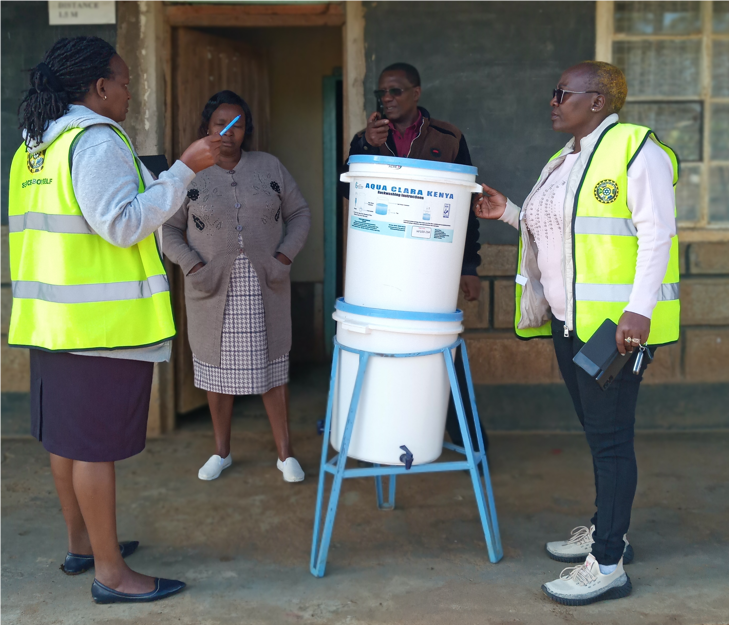
Most public schools in Kenya, especially in rural areas have been faced with water challenges ranging from inadequate water to unclean/unsafe water for drinking. This leads to poor sanitation and hygiene practices, school absenteeism due to water-borne diseases, contributing to poor academic performance.
Making water available in any given rural school in Kenya means a life-changing situation. Its impact is great in that it affects behavior change in a school, and improves the health of children through the reduction of water-borne diseases, thus lowering absenteeism of pupils that translating to improved academic performance through retention of pupils in schools.
The Rotary Club of Nkubu identified this need in a number of schools where only 21 were listed as a matter of priority. The project intends to increase access to clean and safe water for drinking by pupils and teachers, it also intends to improve sanitation services and hygiene practices through behavior change training. The initiative was also intended to improve academic performances through students’ retention and increased transition. Another objective was to reduce water-borne diseases in school-going children through water treatment and hygiene practices. The project was funded by Kshs6,836,802 from Rotary and kshs238,248 other contributions from the club and partners like the community, Running water International, Ministry of education, and ministry of water.
For many years the pupils and students from the targeted 21 schools had not seen or enjoyed safe water for drinking from within their school compound. Handwashing water was equally rare or unavailable altogether since pupils were carrying their own little water from home in small bottles. The clean water for schools projects made the dreams of pupils, teaching, and nonteaching staff come true through the provision of clean safe water, not only for drinking but also for hand washing.
The project has reached a total of 6755 pupils and students from 21 schools with 438,000 liters of water collected through the water tanks and gutter systems installed by the project, together with handwashing buckets. In the targeted schools, the pupils and students are no longer carrying water from their homes in bottles. The schools have recorded high retention of children and improved performance as the time used to look for and fetch water is being used for learning and co-curriculum activities. Moreover, the schools have reported reduced infection of water-borne diseases, improved cleanliness in classrooms and students as well as improved hand washing practices. Some schools have established kitchen gardens for vegetable and flower gardens in schools.